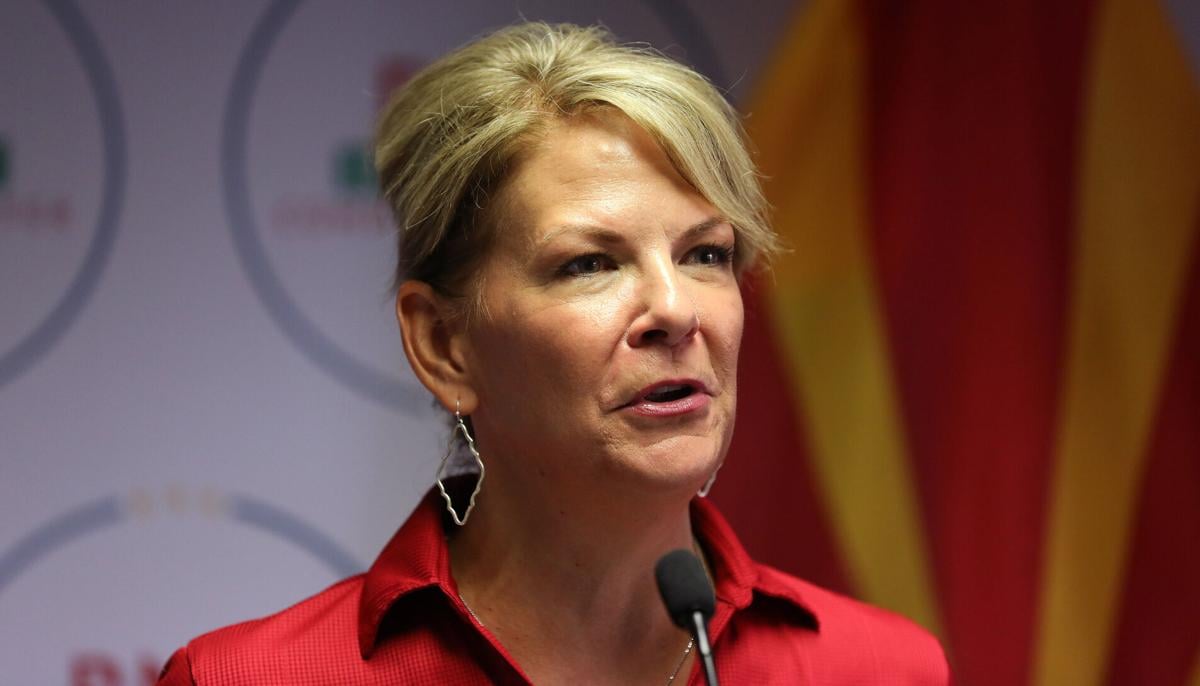PHOENIX — The phone records of Kelli Ward, the chair of the Arizona Republican Party, could be in the hands of the Jan. 6 committee within days unless she can convince a higher court to intercede.
And quickly.
In an unusual weekend order, a majority of a three-judge panel of the 9th Circuit Court of Appeals said that Ward is not entitled to keep the information from the congressional panel while she appeals a lower court ruling ordering disclosure. Judges Barry Silverman and Eric Miller said there is little likelihood she will succeed with arguments that a subpoena from the committee violates her First Amendment rights.
The judges said the demand for the numbers of whom Ward called and texted, and those she received during the period around the 2020 election and the Jan. 6 riot is “substantially related” to the important interest of investigating the causes of the attack and protecting future elections from similar threats.
“Ward participated in a scheme to send spurious electoral votes to Congress, a scheme that the committee describes as ‘a key part’ of the ‘effort to overturn the election’ that culminated on January 6,” they wrote.
What also makes the weekend order so unusual is it comes just four days after the same three-judge panel agreed to enjoin disclosure until they had a better chance to review the legal issues.
The decision by the appellate panel to dissolve the stay that kept the phone records from being turned over to the congressional committee leaves Ward with few legal options. Unless she can get the full 9th Circuit to intercede, that leaves only a last-minute plea to the U.S. Supreme Court.
So far, however, judges hearing her plea have sided with the committee’s claim it needs the records and that lawmakers need them soon: The panel’s authority to investigate self-destructs when this session of Congress ends on Jan. 3, 2023.
The weekend ruling was not unanimous.
Appellate Judge Sandra Ikuta sided with Ward in her argument that production of the records would identify members of the Republican Party with whom she had contact, even if there is no transcript of conversations or texts.
“The only plausible explanation for the committee’s interest in Ward’s phone records is that they reveal information about other Party members,” she wrote. “Such identifying information may expose these members to congressional investigation, perhaps federal criminal investigation, and related public criticism.”
In seeking to keep the phone records from the committee, Ward and her husband Michael, who, like her, also was one of the slate of fake electors who sent a message to Congress that Trump had won Arizona, said they use their phone so “make and receive calls of a political nature” and “to and from people in the political world.”
Silverman and Miller, however, said they remain unconvinced that the production of the phone records will interfere with anyone’s constitutional rights.
“Those vague statements do not show that disclosing the phone numbers involved would reveal anyone’s private organizational membership, much less that the people involved in the calls would be reluctant to associate with any organization or political parties if their identities were revealed,” the court wrote. If that were the case, they said anyone could raise a First Amendment objection to any subpoena for a record of calls that included discussions of politics — or even social economic, religious or cultural matters.
“Narcotics traffickers, or anyone else who might face such subpoenas, would be well advised to make at least a few calls to their preferred political party,” the majority opined if that were the legal standard. “But that is not the law.”
That statement annoyed Ikuta.
“Comparing Ward’s coordination of her Party’s activities during a national election — a core First Amendment activity — to the criminal (and commercial) acts of a narcotics trafficker — decidedly non-expressive activities — conflates political dissidence with criminality,” she wrote in her dissent.
“Regardless of Ward’s position regarding the 2020 election, her right to engage in discussions with her political associates remains entitled to First Amendment protection against the government’s compelled disclosure of her political affiliations,’ Ikuta continued. “We must be vigilant to protect First Amendment rights — even when raised by an individual alleged to have engaged in a nefarious ‘scheme,’ because the weakening of constitutional safeguards in order to suppress one obnoxious group is a technique too easily available for the suppression of other obnoxious groups to expect its abandonment when the next generally hated group appears.”
Attorney Alexander Kolodin who represents Ward, said he is “skeptical” of the conclusion of Miller and Silverman that the congressional investigation is not about his client’s politics.
“That seems unlikely to me,” he said Sunday. But Kolodin said there is a bright side in the dissent.
“I am deeply grateful to Judge Ikuta understanding the serious First Amendment issues caused by this political prosecution of opponents,” he said.
In that dissent, Ikuta also pointed out that the three-judge panel has not heard, much less decided, on the merits of her appeal of the trial court’s order that she must turn over the records. Ikuta said once the records are turned over to the committee, that appeal becomes moot — even if the court later determines that the records are protected.
Silverman and Miller, however, appear to have reached a conclusion. In dissolving the injunction that allowed Ward to keep the records secret, they concluded she has not raised serious questions and “she is not likely to succeed on the merits.”





